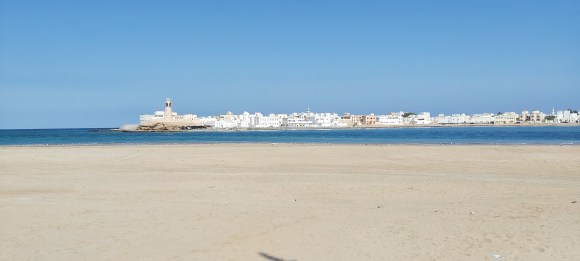Salaam from Muscat, Oman,
Consider the following hypothetical: a country finds itself with a bounty of a natural resource that the rest of the world lacks and is prepared to pay big money to have. This resource is found underground and occurs naturally, having formed over millions of years. The country determines that this asset belongs to the whole nation and that the wealth which potentially derives from it should be shared by all. This is common wealth.

The country decides that this common wealth should be won by the state, sold by the state and that the proceeds go towards defraying the cost of the infrastructure of the nation. This is what the Sultanate of Oman did when oil was discovered in the early 1960s.
What happens when the price of oil falls?
Private businesses like Shell are partners rather than monopolists. In recent decades, gas has also been discovered. Today, they have the infrastructure of a modern nation, built from nothing, in an extraordinarily inhospitable terrain. Nobody in Oman lives in poverty, partly by virtue of the national policy to grant everyone a plot of land at age 24 and to build a house on that land if the recipient is disadvantaged, and partly because Oman has until recently, when the world price of oil fell, had zero income tax. When their export returns fell with the declining oil price, the Sultanate found the necessity to impose a modest income tax. Today, the rate of tax is only single digits for individuals and 15% for small businesses.
Compare Oman to Australia, where our sovereign wealth is given away for nothing. Multinationals and so-called mining magnates mine our coal, drill our oil and excavate our iron ore. We have given it all to them for nothing. And when we want to impose a tax on these gifts, there’s an orchestrated rebellion by the wealthy beneficiaries and their friends in the media.

The comparison makes Australia look fairly stupid. Why are we giving away our own assets? Why is our common wealth a free resource to private enterprise? Shouldn’t we be sharing what we already own for the common good?
public vs private
We have been completely seduced into thinking that everything public is inefficient and everything private is not. We have been persuaded that private is good and that public is bad. The fallacy is disproved in so many organisations that it’s hard to work out why it persists. Oman have proved the fallacy false at a national level and are benefiting in spades.

Where people in Australia complain about taxes and wish for “tax relief” from political parties (and vote accordingly at election time), they might be better off entrusting the sale of their national resources to the state and using the money to pay for their infrastructure that way.

Oman is not a hypothetical but a real case in point. We can learn from the lesson.
Maa Salaam from Oman
Greg
Other photos from thereabouts









